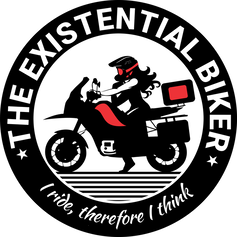|
Can we truly ever develop a single marketplace, governed by a global set of standards, regulations and rules without destroying cultures and eliminating what is beautiful about humanity?  My need for a logo came from an unusual angle. I wanted to support my daughter and her netball team so I decided to become their sponsor. This team has the heart of a lion.. well ok Panther. The Pontyclun Panthers are a 'Back to Netball' club based in south Wales. They've played many games and, its fair to say that they are still... developing. I reckon this team has the makings of a Hollywood screenplay. The underdogs that didn't quit. They've played dozens and dozens of games and won.. just the once. But it's a start! Part of the deal comes with my logo on their kit. A nice touch, but I didn't have a logo. Until I found Mayashani in Sri Lanka.  Mayashani was efficient, quick and helpful. But could I - should I - have gone local? Mayashani was efficient, quick and helpful. But could I - should I - have gone local? Of course, I didn't actually go to Sri Lanka. I went to a popular site called Fiverr, that unites designers, animators and writers with customers all over the world. The digital skills economy is perfect for such talented individuals and has truly given many in developing countries the ability to thrive and earn ten times more than they would have within their own borders. That's if they'd even learnt these globalised skills in the first place. If there's no market for that skill, there's no education. All Hail the Digital Nomad! Access to global markets has spawned the rise of the 'Digital Nomad', those who travel the world, living cheaply and either selling skills such as marketing, or design or even becoming a virtual assistant. It's a rising trend, made possible by improved wifi across the globe. Many adventure travelers, using whatever mode of transport, make a good living by selling their skills online in this way. Or at least enough to get them to the next destination. I like the attitude and philosophies of the digital nomad - what matters to them is not material trappings, not the expensive lifestyle but experiences. They collect people, places, anecdotes, insights and wisdom while they travel. And critically, DN's are real-world, source data gatherers... they collect observable information on the places they go to. They see what life really is like in countries like Iran, what the people are actually like, untainted by the various institutions that often leverage fear or misinformation to sell something, or unite others behind a cause. The opening up of new horizons, the making of new connections, the ultimate living 'in the now' experience is theirs. It is enviable. So that got me to wondering in general about Globalisation - is it ultimately a good or a bad thing? It truly has brought billions out of poverty and created business opportunities for billions more. It is connecting people, cities, countries and continents, exponentially increasing our collective potential to create. New services are being invented, increasing global wealth. However, there's always a 'but'. With fast change comes volatility. Markets are more complex and much more uncertain. Outsourcing is something I'm familiar with and it brings with it both an opportunity and a threat, both from the corporate and individual perspective. The knowledge and skills economy is well suited to globalisation, but how do we really know what we're getting?
Guangzhou or Glasgow? While I didn't really take a huge risk with Mayashani, I had no real way of knowing about the quality of work I was to receive. I had to just go on references as any kind of educational skills she may have quoted I wouldn't have understood. I didn't really know if I'd get the end product. The problem is, that without globalised standards, regulations (enforced) and consequences you'll always have uncertainty, unfair competition and possible exploitation. You'll never really know how a degree in Guangzhou compares to one in Glasgow. Spending thousands on a consultant to find they disappear with no trace or trying to sue because of breach of contract would be nigh on impossible in many cases. Intellectual copyright just isn't enforced globally to the same standards. That led me to a conclusion. To get anywhere near globalisation in a true sense would necessitate all countries and cultures cooperating on a truly global scale and adopting joint standards. That involves massive change and in fairness, would take away some of the advantages that have seen emerging economies enjoy over the last decade. Advantages of low wages and low running costs have seen their economies boom. So no, that won't happen anytime soon. So is it a good thing? Well, if by 'good' you mean helping the largest number of people to live and thrive then, if we can get the world to agree to ditch certain ways of life and operate entirely differently then I suppose it would be. But this is a utilitarian viewpoint, contentious in the extreme. Something like this would also mean fewer differences in society. Cultures would blend along with borders, ways of life would disappear as the pursuit of the global economic currency would reign supreme. I'm not sure I'd like that at all. Perhaps what we need first is the adoption of a set of global (or human) values to live by, just a few, enough to govern fair trade and fair dealing and honest conduct. But then, values are a personal choice, no one has the right to impose those on anyone else. So, yet again, existentialism presents more questions than answers, but at least with global networking capabilities, we get to ask more of the world what it thinks. Pretty sure that a third of them would be saying 'Sure, sounds great. But first, can I just have some clean water please?'
0 Comments
Leave a Reply. |
archives
April 2023
Categories
All
|
 RSS Feed
RSS Feed